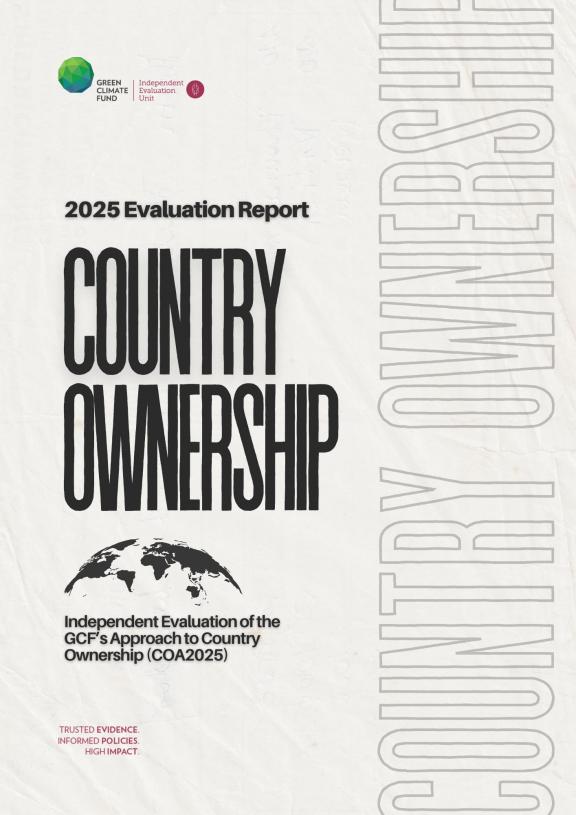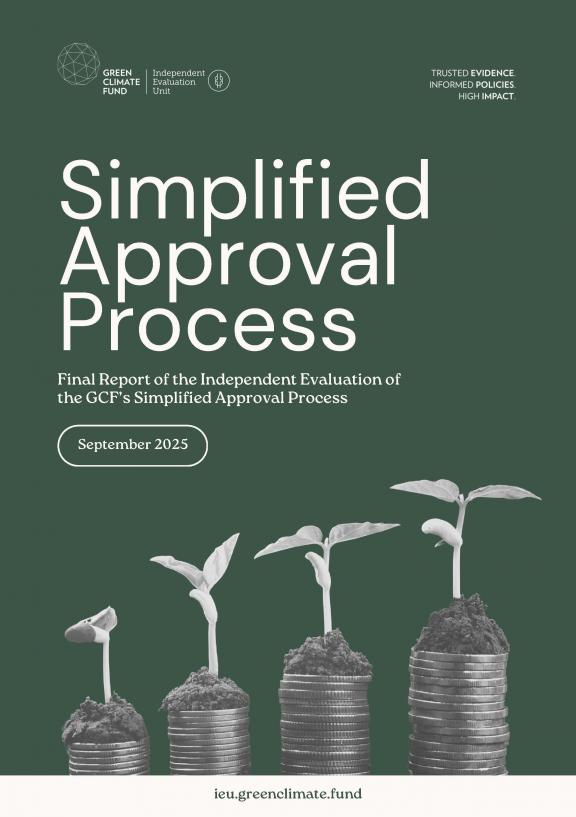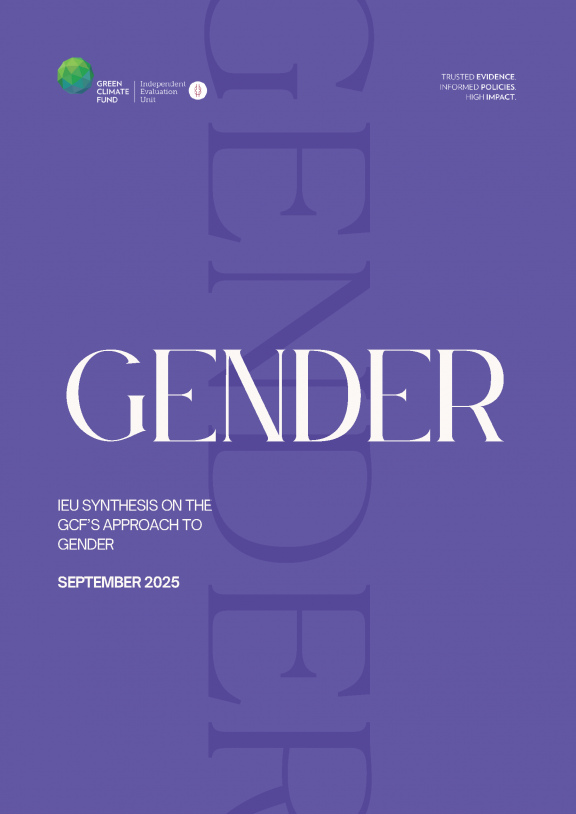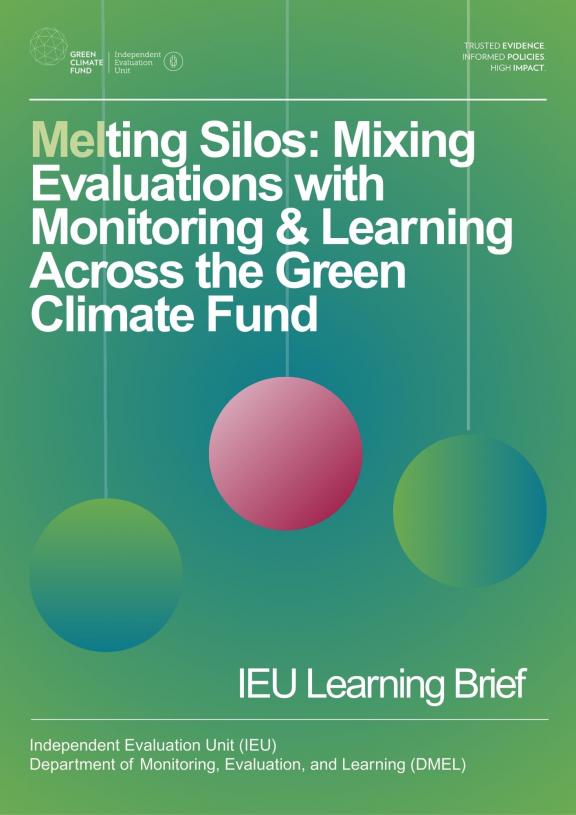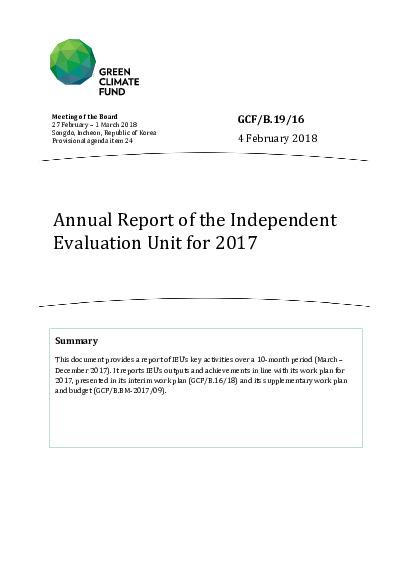IEU publications
IEU publications
To serve the needs of our stakeholders, the IEU issues a variety of publications related to our work, including in the context of evaluations and learning. Keep up with the IEU’s latest publications here.
Featured publications
Independent Evaluation of the GCF's Approach to Country Ownership (COA2025)
This independent evaluation of the Green Climate Fund’s (GCF) approach to country ownership was approved by the GCF Board as part of the 2025 workplan of the Independent Evaluation Unit (IEU) and is submitted in time for its forty-third meeting (B
Independent Evaluation of the GCF’s Simplified Approval Process (SAP2025)
The Green Climate Fund’s Simplified Approval Process (SAP) was created to make climate finance more accessible and responsive, thus enabling smaller, lower-risk projects to address urgent climate needs in vulnerable countries.
Independent Synthesis of the GCF’s Gender Approach
Approved at the fortieth meeting of the GCF Board (B.40), this formative Gender Synthesis consolidates insights from past evaluations, assessments, and studies to inform the forthcoming Independent Evaluation of the GCF’s Gender Approach.
MELting Silos: Mixing Evaluations with Monitoring & Learning Across the Green Climate Fund
This IEU Learning Brief, prepared jointly by the Independent Evaluation Unit (IEU) and the Department of Monitoring, Evaluation, and Learning (DMEL), examines how the Green Climate Fund (GCF) can better align its monitoring, evaluation, and learni
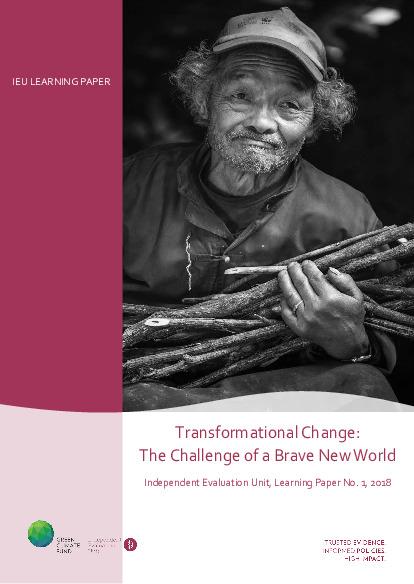
Transformational Change: the Challenge of a Brave New World
September 2018
Most multilateral development agencies aim for change that is ‘transformational’ or that shifts the ‘paradigm’. In many ways transformation has become the holy grail in development assistance, with most development and environmental aid agencies aspiring to deliver transformational change. Despite this, definitions for what constitutes transformational change remain elusive. Consequently, there is nearly a complete absence of evidence on whether transformational change has been achieved. What...
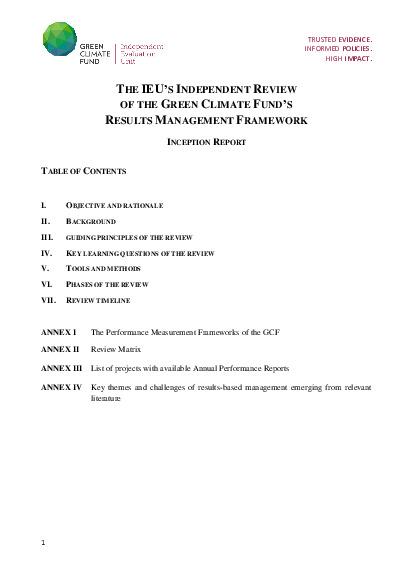
Inception Report for the Independent Review of the Green Climate Fund’s Results Management Framework
August 2018
This review has two main objectives, one is to assess the design, implementation, and utility of the results management framework of the Green Climate Fund. The second is to support institutional learning by deriving lessons and recommendations based on the review’s findings to help inform the results management framework as a tool for achieving the long-term objectives and impacts of the Fund.
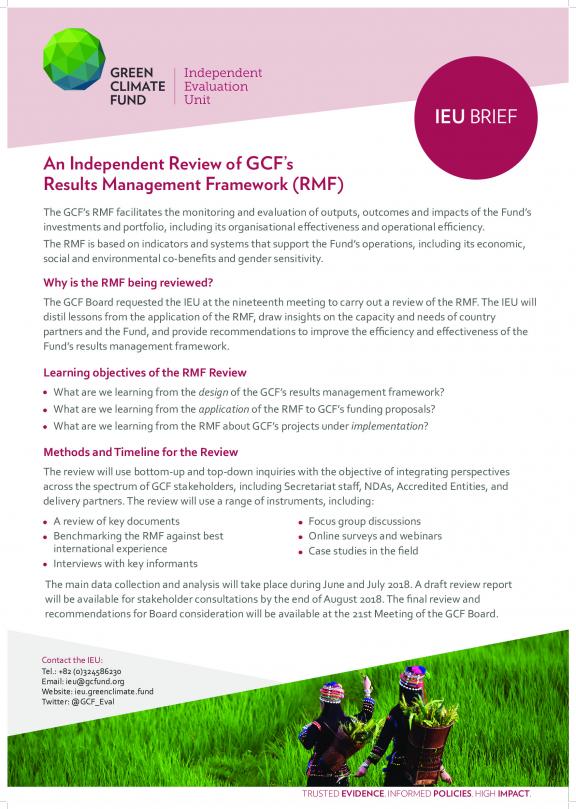
Approach Brief: RMF2018
August 2018
In 2013 the GCF Board decided that the Fund’s results management framework (RMF) should effectively monitor and evaluate the outputs, outcomes and impacts of the GCF’s investments and portfolio, as well as the Fund’s organizational effectiveness and operational efficiency. This 2018 1-page introductory brief provides a pre-implementation summary of the IEU’s planned evaluation of the GCF’s RMF. It explains in simple terms the reasons for the evaluation, the learning objectives, timeline and...
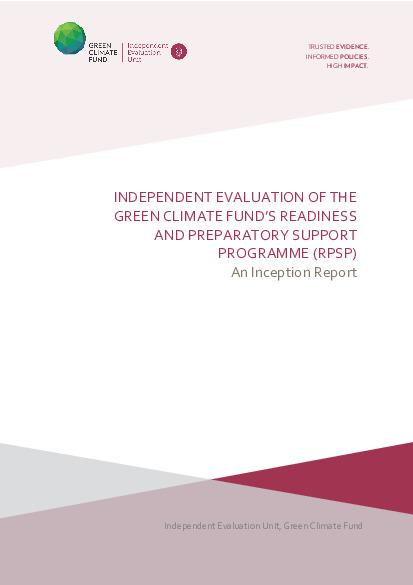
Inception Report for the Independent Evaluation of the GCF's Readiness and Preparatory Support Programme
June 2018
This Inception Report outlines the methodology and work plan of the evaluation team undertaking the Independent Evaluation of the Readiness and Preparatory Support Programme (RPSP) of the Green Climate Fund (GCF).
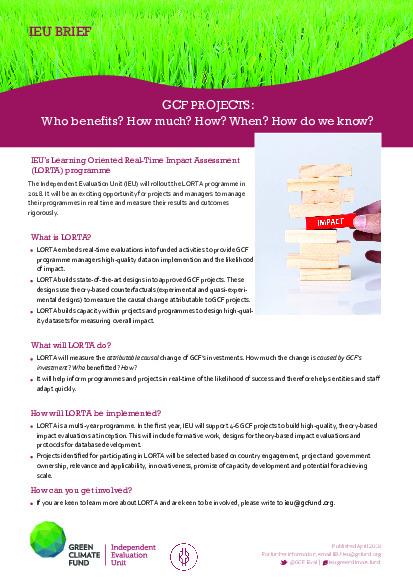
IEU Brief: GCF PROJECTS: Who benefits? How much? How? When? How do we know?
April 2018
The multi-year Learning-Oriented Real-Time Impact Assessment (LORTA) programme keeps track of the impact of GCF investments. Its goal is to assist GCF projects measure their impact in lowering greenhouse gas emissions and enhancing resilience to climate change, and if so, by how much. LORTA’s assistance includes, among other things, building and clarifying theories of change, co-building real-time and longer term measurement systems and helping projects use quantitative and qualitative...
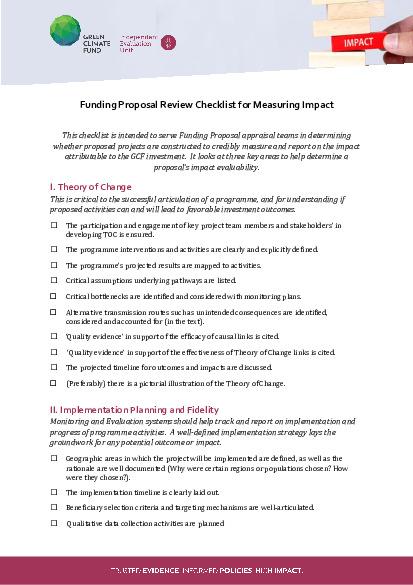
Funding Proposal Review Checklist for Measuring Impact
April 2018
This checklist is intended to serve Funding Proposal appraisal teams in determining whether proposed projects are constructed to credibly measure and report on the impact attributable to the GCF investment. It looks at three key areas to help determine a proposal’s impact evaluability.
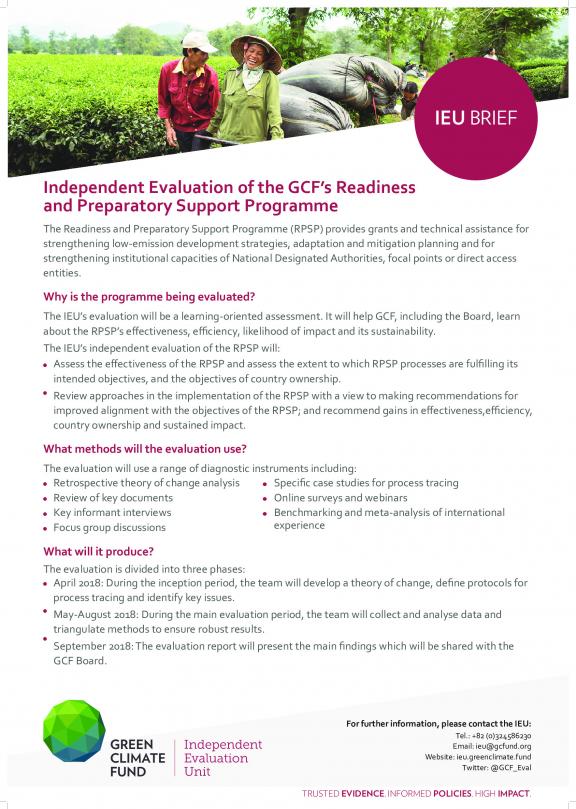
Approach Brief: RPSP2018
March 2018
The GCF’s Readiness and Preparatory Support Programme (RPSP) supports developing countries’ develop a transformational long-term climate action agenda through country-driven initiatives that strengthen institutional capacities, governance mechanisms, planning and programming. This 2018 1-page introductory brief provides a pre-implementation summary of the IEU’s planned evaluation of the GCF’s RPSP. It explains in simple terms the reasons for the evaluation, the intended methods and the...
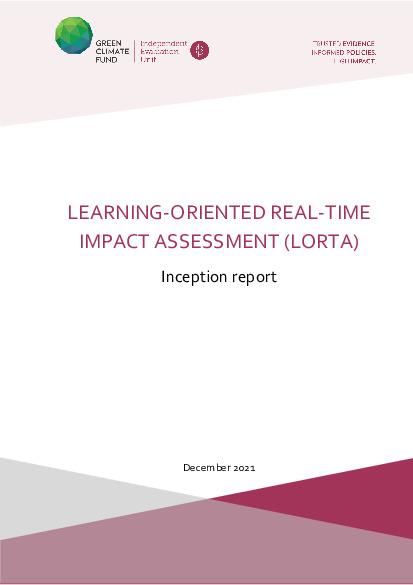
LORTA Inception Report 2021
The 2021 inception report for the Learning-Oriented Real-Time Impact Assessment (LORTA) programme highlights the programme's objectives, methodologies, and progress. The report discusses the design and implementation strategies, evaluates the performance of ongoing projects, and provides insights into the effectiveness of the interventions and their contributions to climate resilience and low-emission development.
